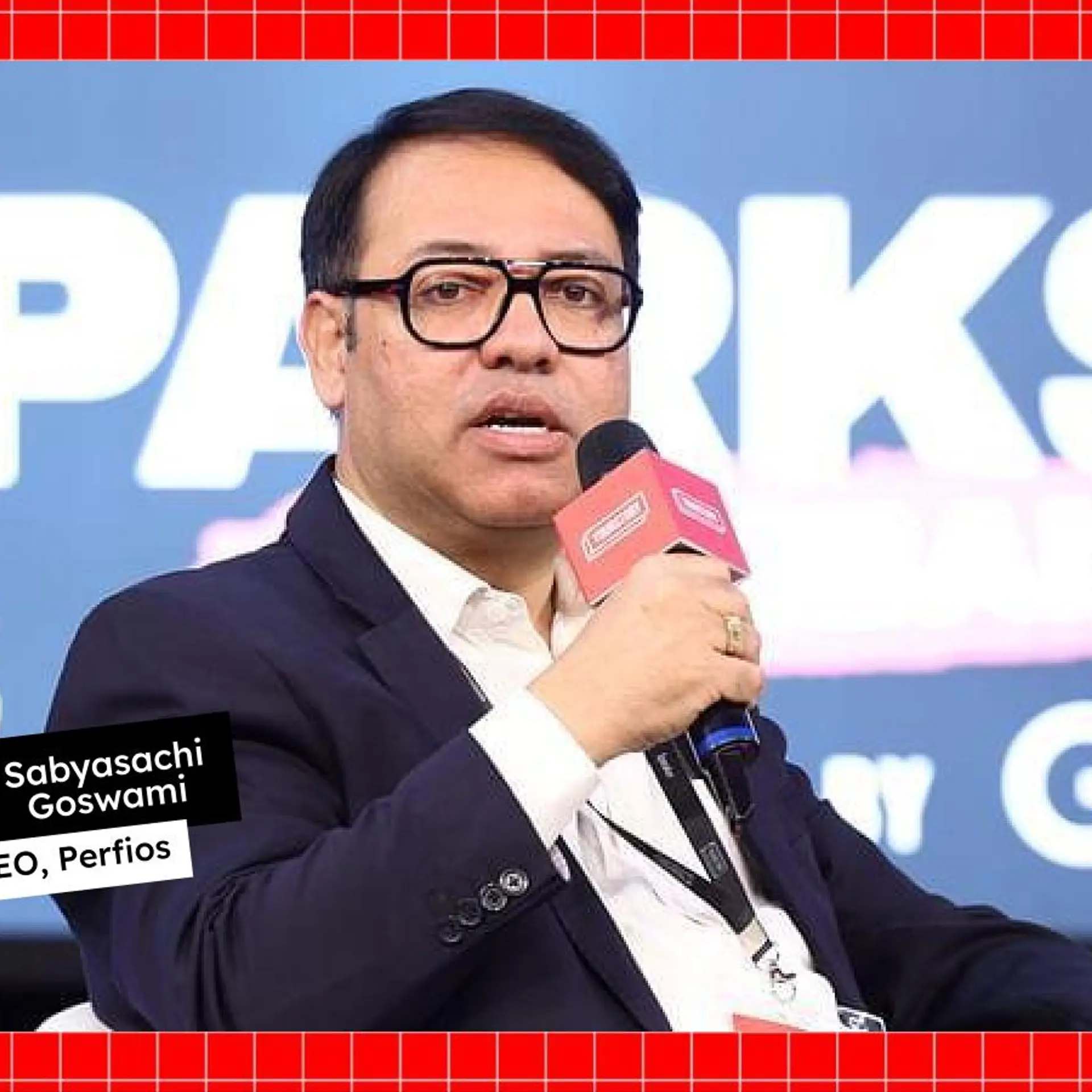Startup Guide Tokyo: how this global tech hub is reinventing itself for a new wave of entrepreneurs
This guidebook covers emerging startups, accelerators, coworking spaces, and support institutes in one of Asia’s leading business and cultural hubs.
The Startup Guide series of books, launched in 2014 by Copenhagen-based publisher Sissel Hansen, covers over 20 cities such as London, Stockholm, Lisbon, Oslo and Miami. See our reviews of the guidebooks for New York, Berlin, Munich, Zurich, Paris, Johannesburg, Cairo, and Singapore.

Startup Guide Tokyo is spread across 210 pages and makes for an informative and entertaining read, with profiles of founders, coworking spaces, accelerators, and other ecosystem players. Supported by JETRO and IPA as partners, the book also includes a three-page glossary of entrepreneurship terms.
“One of the most densely populated cities in the world, Japan’s capital is a charming mix of old and new, calm and commotion, order and chaos,” Sissel begins.
Attitudes toward entrepreneurship are becoming more progressive as well, and the government’s J-Startup programme boosts the local ecosystem and welcomes entrants from overseas. In 2018, Japanese Prime Minister Shinzo Abe rolled out a strategy that aims to produce at least 20 tech unicorns by 2023.
“The giants that were in the spotlight in the 1990s, such as Sony and Honda, have not yet been replaced on a global level by any trailblazing line of Japanese unicorns,” observes Aryssa Isuyama, who heads startup operations at Slush Tokyo.
“The brave, culturally sensitive, and resilient will surely see their seeds bear fruit in the years to come,” she adds.
“For Japan, the coming decade will be a historical moment to create a new prosperous society, and startups will be central players of the challenge,” according to Takuya Hirai, Former Minister of State. Large firms are embracing open innovation in addition to their own R&D and commercialisation of university knowledge.
Overview
With a GDP of $5 trillion, Japan’s market is the third-largest economy in the world. Japanese customers are known to be sophisticated, and demand high standards of proof of concept. Greater Tokyo – with a population of over 14 million – accounts for a major chunk of Japan’s GDP.
Japan was the sixth-largest market in terms of venture-capital investment in 2017, and the University of Tokyo graduated around 250 startups that year. Notable startups in recent years include Preferred Networks, Nihon Kotsu, CrowdWorks, Mercari and Line.
Though there are societal preferences for working at large prestigious corporations rather than startups, the entrepreneurship movement is picking up. Japan’s tech strengths are in manufacturing, electronics, robotics, healthcare, agritech, and Artificial Intelligence (AI). However, regulations have hindered the rise of ride-hailing services like .
Tokyo has excellent transportation and communications infrastructure and a safe environment, and its citizens are highly-regarded for their politeness and law-abiding culture. Long working hours are the norm, as well as socialising over drinks after office hours.
Startup profiles
One section of the book profiles nine startups based in Tokyo. They include drone solutions provider Aeronext, with services for security, mobility, inspection, and delivery. Infostellar helps satellite operators share communication services with ground stations and antenna operators.
Clarity is a platform where women and minority communities can find the best workplace to suit their needs. It provides information that can address women’s work/life choices, as well as anonymous reviews by female employees.
Empath has developed vocal emotion AI, for use cases like understanding depression via voice, visual and biometric cues. Hacobu is a B2B logistics platform with digital ID features. Soramitsu has a blockchain-powered platform for digital identity and payment solutions in the financial system.
TableCross has developed a restaurant-reservation app with a social purpose as well. For every meal booked through the app, Tablecross funds one school lunch for a child in a poor country.
TELEXISTENCE offers robot-control interfaces for people to access and manage robots remotely. Zehitomo is a marketplace for local services such as plumbers, personal trainers, freelancers, and karaoke instructors.
Many of these startups have availed of funding from Airbus Ventures, Sony Innovation Fund, 500 Startups Japan, DNX Ventures, Mizuho Capital, Slush Japan’s pitch contest, KDDI, Global Brain Corporation, Innovation Platform of the University of Tokyo, and Ministry of Internal Affairs and Communications (MIC).
Startup ecosystem
Two sections of the book profile the support system for startups, ranging from coworking spaces to programmes at incubators and accelerators. For example, EGG JAPAN provides office spaces and networking for over 600 startups as well as large enterprises.
JETRO IBSC (Invest Japan Business Support Center) helps companies aiming to enter the Japanese market. Global Business Hub Tokyo (GBHT) supports many IT startups, most of whom are from outside Japan.
Mitsubishi Estate and SAP Japan established Inspired.Lab to tackle social issues related to Japan’s ageing population and the resultant declining labour force, as well as environmental and health issues. LINK-J (Life Science Innovation Network Japan) facilitates collaborative innovation in life sciences.
The Tokyo Metropolitan Government’s Startup Hub Tokyo supports a range of entrepreneurs. WeWork has around 19 locations across five cities in Japan.
Incubate Camp is run by Incubate Fund and has held over 12 camps. Established by the Japan Patent Office (JPO), the IP Acceleration Program for Startups (IPAS) offers courses on IP.
J-Startup was set up by the Ministry of Economy, Trade and Industry (METI), Japan External Trade Organisation (JETRO), and New Energy and Industrial Technology Development Organisation (NEDO) to create cutting-edge Japanese startups. It has provided support via VCs, accelerators, corporates, and government departments for startups like Sansan, a contact-management solutions company that went public in 2019.
Open Network Lab (Onlab) is part of the Digital Garage Group. The seed accelerator programme culminates with a Demo Day for startups in sectors like real estate, lifestyle, and health. Notable startups include WHILL (electric vehicles), Fond (SaaS platform that consolidates employee rewards processes) and mobingi (cloud-computing provider).
Plug and Play Japan offers an accelerator programme for startups and open-innovation-strategy consulting for enterprises, in sectors like IoT, fintech, mobility, and retail. Sekai Creator offers an educational incubator programme.
Zeroth.AI has an accelerator programme in Hong Kong, India, and Japan. Its startups include Calm, the relaxation app (regarded as the first unicorn startup focussed on meditation).
Leaders of these support institutions list several success factors for entrepreneurs, such as originality, a sense of purpose, good timing in the market, and the ability to work with partners and accept external advice. Founders should have clarity about the value of their IP, and be willing to learn continuously.
Expert insights
One section of the book provides tips from experts representing accelerators, tech giants, and startup support initiatives in the city. The advice covers technology, finance, legal issues, and overall mission.
“From our point of view, one of the biggest challenges when growing a startup is to design a technical architecture that can accommodate its business as it grows,” explains Tatsuya Ishiwatari of Amazon Web Services (AWS) in Japan.
“Large Japanese companies in Tokyo are now very open to working with global startups. The key thing is to reach out to the right person within the organisation,” says Hiroshi Hata of AWS Japan. AWS Loft Tokyo provides a coworking space and a consultation desk called Ask an Expert. It organises AWS Startup Day in Tokyo, and offers AWS Activate for tech credits.
“Even though it’s still very common to work for one company for many years, younger people are starting to think about work differently,” according to Kiyoshi Nakazawa of JETRO. It runs programmes called Global Acceleration Hub and Innovation Hot Spot.
“Dealing with the language barrier and finding the right people to start a business with can often be challenging at the onset,” cautions Futoshi Chiba of Mitsubishi Estate. The company runs coworking spaces like EGG JAPAN, Global Business Hub Tokyo, Inspired.Lab, and FINOLAB.
Working with corporates helps startups build credibility and access a wide range of customers, advises Koichi Noguchi of PwC. Corporates in turn gain by staying on top of tech change and remaining innovative. PwC Japan’s Global Innovation Factory (GIF) offers digital transformation approaches for companies, and sponsors events such as Slush Tokyo and TechCrunch Tokyo.
SAP Japan connects Tokyo startups to large enterprises customers, as explained by Sinead Kaiya, Head of Innovation, SAP Asia Pacific Japan. She strongly believes that digital transformation and collaboration are imperatives for Japanese firms.
“Japan has a strong culture of teaming up in the face of adversity and not giving up until a solution is found. People here have incredible ingenuity in problem-solving, continuously improving, and iterating to find a unique solution,” Sinead adds.
SAP Japan aims to be a “lighthouse of innovation” for customers, and is developing the Business Innovators Network. It also runs the SAP.iO Foundry Tokyo accelerator programme and SAP Leonardo Experience Center.
“Be sure to adopt a purpose-driven mindset and link your startup’s mission to the SDGs,” advises Ann Rosenberg, SVP for UN Partnerships at SAP, and global head of SAP Next-Gen and SAP University Alliances. She also advocates a focus on Society 5.0 (‘Imagination Society’) and alignment with environmental sustainability.
These experts offer a range of tips to founders, such as developing familiarity with Japanese culture, attending networking events, being open to collaboration, and understanding the working style of large corporate partners.
Founder advice
The book features interviews with founders of four startups, though it would have been great to profile at least a dozen entrepreneurs for variety and depth. The profiled founders trace their entrepreneurial journeys, advice received, lessons learnt, and tips for the next wave of aspiring entrepreneurs.
Akiko Naka worked at Goldman Sachs and Facebook before launching her startup, even going against parental advice. She founded Wantedly, a social hiring platform that connects individuals with companies based on shared mission and values rather than salary and benefits.
Its clients include Sony, Panasonic, Uber and Dropbox. Akiko stresses the importance of having a proper hiring process, and credits her creativity as one of her success factors.
The Japanese entrepreneurial community is not as liberal or innovative as it is in San Francisco, according to Akiko. Since local products have to be very specific to the unique Japanese culture, they may not scale well overseas, she cautions.
Emi Takemura worked for over 25 years in the tech sector at companies like Disney and Amazon. She then founded Peatix, a community-event platform that has over 3.5 million users.
“Hiring UI and UX designers is especially difficult in Japan,” she cautions. She advises founders to build a team with complementary skillsets, not wait for too long before launching a product, and nurturing solid company culture.
“Culture is something that’s very difficult to rebuild once a company is established, so it’s actually good to invest in it early,” Emi urges.
Yuki Ito founded Zest, a scheduling solution for home-care and home-health agencies. “Running a business is like surfing. When you first start out, even the little waves knock you down,” she explains. “Over time, you figure out that although each wave is a little larger and more painful, none of them kills you,” she jokes.
Yuzo Kano, an engineer from the University of Tokyo, is also co-founder of bitFlyer Holdings, one of Japan’s largest Bitcoin exchanges. Early challenges included educating people about the use of virtual currencies.
“An entrepreneur should be doing something new that people don’t understand. This is because most entrepreneurs are thinking about the future,” he explains. “If people understand what you’re doing, then you’re probably too late,” he adds.
He also emphasises the importance of mission, vision and values (MVV) for founding teams. His startup’s values are summarised by ‘PEN’ (passion, execution, numbers). “Your sole purpose should not be to just create a company,” Yuzo urges.
Schools
One section of the book outlines education support initiatives for startups in Tokyo. For example, Code Chrysalis is a coding school in Tokyo that brings Silicon Valley software engineering standards to Japan. Some of its graduates are now in Google, Quoine, and PlayStation.
Eirene Management School offers the Innovation Management Course and the Design Thinking Masterclass. The Graduate School of Management at GLOBIS University has programmes in Entrepreneurial Leadership, Venture Strategy, and Venture Capital. Hitotsubashi ICS specialises in creation, management and dissemination of knowledge.
The schools urge aspiring entrepreneurs to have a proactive attitude, growth mindset, effective storytelling skills, and creative abilities. Having a higher mission, society-first approach, and human focus helps alignment between personal and professional goals.
Investors
The last section of the book offers insights from six investment firms. For example, 31VENTURES is a venture co-creation department within real-estate developer Mitsui Fudosan. It funds startups in proptech, greentech, fintech, mobility, energy and AI.
Its funding structures include the Global Innovation Fund and the Growth I Project. Its startups include SiteAware, a drone company that operated at Mitsui Fudosan’s construction sites.
Abies Ventures is focussed on deep-tech technologies. It is also part of Mistletoe, a social impact investment firm and startup studio created by entrepreneur Taizo Son.
Beyond Next Ventures targets startups with roots in universities, in fields such as medtech, biotech, and life sciences. It hosts two acceleration programmes: BRAVE (Japan’s largest seed acceleration program) and Blockbuster TOKYO (for drug-delivery startups). Notable startups include Cyberdyne (robotic exoskeleton suit for factory workers), and Spiber (biomaterials such as synthetic spider silk).
D4V (Design for Ventures) is a VC firm that has partnered with global design company IDEO. Its startups include ExaWizards (social impact via AI) and AirCloset (subscription service for boutique clothing).
DEEPCORE, a subsidiary of SoftBank Group Corp, is an incubator and investor in AI startups. Its partners included the University of Tokyo and Okinawa Institute of Science and Technology. It also has a coworking space called KERNEL.
DNX Ventures focusses on B2B startups, and has an extensive global corporate network. Its startups include Cylance (cybersecurity firm).
Leaders in these funds explain that they are on the lookout for startups that show differentiation, transformative offerings, great communication, motivated leadership, and effective execution.
The book ends with a directory of useful resources for startups, meetups groups, and events. These include expat meetups like GaijinPot, Internations Tokyo, and TEN (Tokyo Expat Network). Notable events for startups include B-Dash, Industry Co-Creation (ICC), and Slush Tokyo.
Venture Café Tokyo is Asia’s first local branch of the global Venture Café Global Institute. It is also a sister organisation of the Cambridge Innovation Center (CIC). VCT holds a weekly signature event called Thursday Gathering.
In sum, the book provides informative and entertaining insights into Tokyo’s startup ecosystem, as well as a useful framework for other cities to reflect on and improve their own startup ecosystems.
(Edited by Saheli Sen Gupta)










